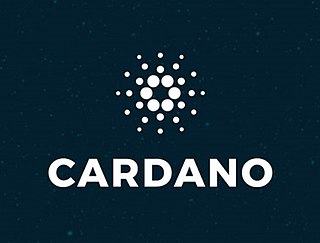In finance, a dark pool is a private forum for trading securities, derivatives, and other financial instruments. Liquidity on these markets is called dark pool liquidity. The bulk of dark pool trades represent large trades by financial institutions that are offered away from public exchanges like the New York Stock Exchange and the NASDAQ, so that such trades remain confidential and outside the purview of the general investing public. The fragmentation of electronic trading platforms has allowed dark pools to be created, and they are normally accessed through crossing networks or directly among market participants via private contractual arrangements. Generally, dark pools are not available to the public, but in some cases, they may be accessed indirectly by retail investors and traders via retail brokers.
Lit pools, also called lit markets, are a type of stock exchange. They are effectively the opposite of dark pools or dark liquidity. Whereas ‘dark’ venues do not display prices at which participants are willing to trade, lit pools do show these various bids and offers in different stocks. Primary exchanges operate in such a way that available liquidity is displayed at all times and form the bulk of the lit pools available to traders. The majority of trades, 70%, are transacted over lit pools. Lit pools are closer to what is generally considered the ideal market, due to their transparency.

Ethereum is a decentralized blockchain with smart contract functionality. Ether is the native cryptocurrency of the platform. Among cryptocurrencies, ether is second only to bitcoin in market capitalization. It is open-source software.

Augur is a decentralized prediction market platform built on the Ethereum blockchain. Augur is developed by Forecast Foundation, which was founded in 2014 by Jack Peterson, Joey Krug, and Jeremy Gardner. Forecast Foundation is advised by Ron Bernstein, founder of now-defunct company Intrade, and Ethereum founder Vitalik Buterin.
A decentralised application is an application that can operate autonomously, typically through the use of smart contracts, that run on a decentralized computing, blockchain or other distributed ledger system. Like traditional applications, DApps provide some function or utility to its users. However, unlike traditional applications, DApps operate without human intervention and are not owned by any one entity, rather DApps distribute tokens that represent ownership. These tokens are distributed according to a programmed algorithm to the users of the system, diluting ownership and control of the DApp. Without any one entity controlling the system, the application is therefore decentralised.

Cardano is a public blockchain platform. It is open-source and decentralized, with consensus achieved using proof of stake. It can facilitate peer-to-peer transactions with its internal cryptocurrency, ADA.
Decentralized finance provides financial instruments and services through smart contracts on a programmable, permissionless blockchain. This approach reduces the need for intermediaries such as brokerages, exchanges, or banks. DeFi platforms enable users to lend or borrow funds, speculate on asset price movements using derivatives, trade cryptocurrencies, insure against risks, and earn interest in savings-like accounts. The DeFi ecosystem is built on a layered architecture and highly composable building blocks. While some applications offer high interest rates, they carry high risks. Coding errors and hacks are a common challenge in DeFi.

MetaMask is a software cryptocurrency wallet used to interact with the Ethereum blockchain. It allows a user to access their Ethereum wallet through a browser extension or mobile app, which can then be used to interact with decentralized applications. MetaMask is developed by Consensys, a blockchain software company focusing on Ethereum-based tools and infrastructure.

DAI is a stablecoin token on the Ethereum blockchain which uses smart contracts designed to control supply to keep its value as close to one United States dollar as possible. DAI is maintained and regulated by MakerDAO, a decentralized autonomous organization composed of the owners of its governance token, MKR, who may propose and vote on changes to certain parameters in its smart contracts.

Uniswap is a decentralized cryptocurrency exchange that uses a set of smart contracts to create liquidity pools for the execution of trades. It is an open source project and falls into the category of a DeFi product because it uses smart contracts to facilitate trades instead of a centralized exchange. The protocol facilitates automated transactions between cryptocurrency tokens on the Ethereum blockchain through the use of smart contracts. As of December 2024, Uniswap is estimated to be the second largest decentralized exchange and the seven-largest cryptocurrency exchange overall by daily trading volume.

0x is an open-source, decentralized exchange infrastructure that enables the exchange of tokenized assets on multiple blockchains. Developers can use 0x to incorporate exchange functionality into their applications, and market makers can use 0x to create markets for cryptocurrencies and tokens. ZRX, an Ethereum ERC-20 token, is the native governance and staking token of 0x. Individuals who own ZRX can vote on protocol changes and stake their tokens to earn liquidity rewards in Ether (ETH). The project's creator and core developer is 0x Labs.

SafeMoon LLC was an American cryptocurrency and blockchain company created in March 2021. The company created the SafeMoon token (SFM) which traded on the BNB Chain blockchain. The token charged a 10% fee on transactions, with 5% redistributed to token holders and 5% directed to wallets in a different currency, Binance Coin (BNB), controlled by the coin's authors. The token reached its all time high market cap in April 2021 of $17b.
Stacks, formerly Blockstack, is a layer-2 blockchain that extends the use of Bitcoin to include smart contracts, decentralized finance ("DeFi"), non-fungible tokens (NFTs), and decentralized apps ("DApps"), while still maintaining Bitcoin finality. Stacks, like the Lightning Network, Merlin Chain, Rootstock Infrastructure Framework (RIF) and Dovi, is aimed at improving the functionality of Bitcoin.
Constant-function market makers (CFMM) are a paradigm in the design of trading venues where a trading function and a set of rules determine how liquidity takers (LTs) and liquidity providers (LPs) interact, and how markets are cleared. The trading function is deterministic and known to all market participants.
Tokenomics is a term that refers to the study and analysis of the economic aspects of a cryptocurrency or blockchain project, with a particular focus on the design and distribution of its native digital tokens. The term is a portmanteau of words token and economics.

PancakeSwap is a decentralized exchange (DEX) built on multiple blockchains. As of 2024, it is one of the major DEX on Binance Smart Chain and has more than $2.3B in total value locked.
Aave, formerly known as ETHLend, is an open-source decentralized finance (DeFi) protocol which was initially built on the Ethereum blockchain and released in 2020. It is one of the largest cryptocurrency liquidity protocols. The Aave Protocol uses smart contracts to automate processes, including distributing funds and handling collateral.

Uniswap Labs is a software company in the decentralized finance (DeFi) space, founded in 2018 by Hayden Adams. It is the creator of the Uniswap Protocol, a peer-to-peer system for swapping digital assets, which has facilitated over $2.4 trillion in trading volume. The protocol operates as an automated market maker (AMM), enabling users to trade cryptocurrencies directly from their wallets without relying on centralized intermediaries.
Hayden Adams is the founder and CEO of Uniswap Labs, the company responsible for the development of the Uniswap Protocol, a leading decentralized exchange (DEX) built on the Ethereum blockchain. Adams launched Uniswap in November 2018, after working as a mechanical engineer and being inspired by a blog post written by Vitalik Buterin, the co-founder of Ethereum. His goal was to create a decentralized platform for exchanging tokens without relying on centralized exchanges.
Iron Finance was a decentralized finance (defi) protocol based on Polygon blockchain.










